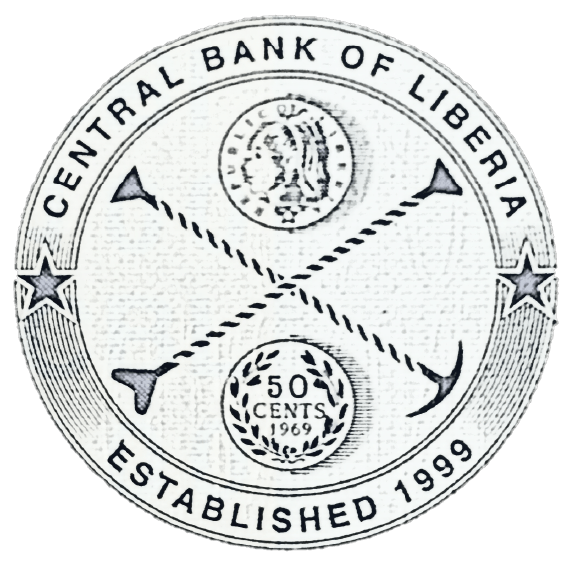The Central Bank of Liberia (CBL) was established on October 18, 1999 by an Act of the National Legislature of the Republic of Liberia. It became functional in 2000 and succeeds the National Bank of Liberia (NBL). Mr. Elie E. Saleeby served as the Bank's first Executive Governor.
The principal objective of the CBL is to achieve and maintain price stability in the Liberian economy. To this end, it seeks to preserve the purchasing power of the national currency; promote internal and external equilibrium in the national economy; encourage the mobilization of domestic and foreign savings and their efficient allocation for productive economic activities; facilitate the emergence of financial and capital markets that are capable of responding to the needs of the national economy, and foster monetary, credit and financial conditions conducive to orderly, balance and sustain economic growth and development.
The powers of the Bank are vested in a Board of Governors, responsible for the formulation and implementation of policy. The Board consists of five Governors who are appointed by the President of Liberia subject to confirmation by the Liberian Senate.
The management of the Bank is conducted by an Executive Governor who is also Chairman of the Board of Governors and two Deputy Governors who serve as principal assistants to the Executive Governor. They are appointed by the President of Liberia subject to confirmation by the Liberian Senate.
Missions and Objectives
The Mission and Objectives of the Central Bank of Liberia is to maintain price stability and to ensure a sound banking and financial system, thereby contributing to sustainable economic development of the nation.
The Management of the Central Bank of Liberia seeks to achieve the objectives of its mission through:
- Maintaining the value of the domestic currency and external reserves
- Pursuing appropriate interest and exchange rate policies
- Safeguarding the integrity of the financial sector
- Issuing notes and coins to meet the demand of the general public
- Conducting economic analysis and publishing economic and financial statistics
- Promoting and supporting the development of financial markets and efficient payment and settlement systems
- Advising the Government on economic and financial matters
In achieving the objectives above, the Bank commits itself to providing effective support functions through a sound banking and financial control system, appropriate information system and the development of competent and qualified staff.
